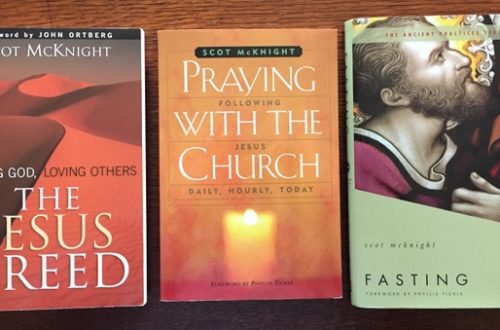
A fresh perspective on Deborah by Barb Haesecke
Our first-born daughter is a born leader. She came out of the womb with Director of Activities stamped on her forehead! She was smart, analytical, creative and passionate. She loved big projects and The Big Picture. (Still does!) On many a day, I just shook my head and said, “Lord, I don’t quite know what to do with her!”
But as she headed off to college, I saw her blossom. She joined ROTC and after graduation spent five years serving our country in the United States Army. Along the way, she was rewarded again and again for taking initiative and leading with integrity and foresight. When she left the Army, she believed God was calling her to use the gifts He had given her to advance His Kingdom on the earth.
What came next was a little jarring. She found churches to be largely unwelcoming to a woman with her particular gift-mix and experience. She was startled to realize that men found her threatening. They competed with her, when all she wanted to do was join a team of believers who were committed to spreading the Gospel and offer grace and healing to people in need. The Church seemed to say, “Lord, we don’t quite know what to do with her!”
It made me wonder: How many women find themselves in a similar situation, built and equipped for leadership and yet not invited to do so? What is God’s design for leadership? What will the Church do with the bright, educated, Jesus-loving women I continue to meet who struggle like my daughter?
That led me to the Book of Judges and the story of Deborah, and as I studied I began to question some ideas like, God chose her only because “a good man was hard to find.” As a result, she was God’s Plan B, not Plan A. I even read in a commentary that God chose her to shame Israel!
As I studied, a fresh perspective emerged. I began to see Deborah, not as an oddity, not as an exception, but instead as an Old Testament glimpse into what the future would hold when Jesus the King would come to earth to enlist all of us, men and women, to join his army to spread the Gospel of grace. Deborah’s story shows us God’s Plan A as far back as the time of the Judges.
We meet Deborah during a dark time in Israel’s history. God’s people resided in the Promised Land but worshipped both the true God and the Canaanite gods. God disciplined them by turning them over to their enemies. They would repent, cry out to Him, and He would rescue them by raising up a deliverer, known as a judge. During peacetime, judges settled disputes and oversaw legal matters, but when the people needed deliverance, the judge became their military rescuer. That’s what’s going on in Judges 4: 1-3. “After Ehud’s death, the Israelites did evil in the Lord’s sight. So the Lord turned them over to King Jabin of Hazor, a Canaanite king. The commander of his army was Sisera, who had 900 chariots. He ruthlessly oppressed the Israelites for 20 years. Then the people of Israel cried out to the Lord for help.”
Verse 4 introduces us to Deborah. “She was a prophetess, wife of Lappidoth and she was leading Israel at that time. She held court under the Palm of Deborah between Ramah and Bethel in the hill country of Ephraim.” We learn 3 things about Deborah here:
1) She was leading Israel already. Already, by God’s authority, she held court in a strategically centralized area of the country, just north of Jerusalem, where all the tribes had access to her counsel and guidance. The people of Israel clearly recognized her position of leadership.
2) She is called “wife of Lappidoth.” This is possibly to recognize her relationship to her husband. However, Ron Pierce, Professor of Biblical and Theological Studies in the Talbot School of Theology, suggests that the phrase be translated ‘a woman of fire”, since the Hebrew word “lappid” is translated “torches” in two other places in the book of Judges. But what is most telling are the first words in the verse.
3) She was a prophetess. Her distinctive role as a prophet means that God had given her the great privilege and responsibility of bringing His Word to His people. She spoke on His behalf, calling his people to obedience, and this role as prophetess is mentioned first, taking precedence over everything else Deborah did.
She also holds the distinction of being Israel’s prophet and judge alongside only two others in Israel’s history – Moses and Samuel. I’d say she finds herself in mighty good company!
Nothing in this introduction speaks of Deborah as God’s Plan B!! Instead, we read that Deborah had been chosen by God as a prophet and a judge, and when the cry of His people rose up against Jabin’s cruelty, she became His Commander-in-chief!
As Commander-in-chief she then summoned Barak and told him what God had told her. She instructed him, as her Field General, to gather together an army of 10,000 warriors and assemble at Mt. Tabor. It’s Barak’s reply that has led to consternation over the years. In verse 8 he says, “If you go with me, I’ll go, but if you don’t go with me, I won’t go.”
Some readings of this passage have yielded pronouncements on Barak as a “wimp” who was afraid of this 900 chariot army and tried to hide behind a woman’s skirts. But as we look elsewhere in Scripture we read in Hebrews 11 that Barak is mentioned as a great man of faith “who conquered kingdoms.” He’s listed among those “who became powerful in battle and routed foreign armies.” He made the Hall of Faith, for goodness’ sake!
Seen in this light, Barak is the man who came when Deborah summoned him because he believed that God spoke through her as His prophet and was with her in a special way. Much like Moses who refused to go forward unless God went with him and His people (Exodus 33), Barak didn’t want to do anything without the assurance of God’s presence. That’s what I call wisdom! Ron Pierce puts it this way, “This is the wise response of a good man to the leadership of an equally good woman.” Can I get an amen?
In short, he valued Deborah’s wisdom, her prophetic voice and seemed perfectly content to be God’s General-of-the-troops to Deborah’s Commander-in-chief. His humility is especially remarkable when we take into account Deborah’s additional news that the Lord was going to hand Sisera over to a woman in verse 9. We discover later that His intention was to let a Gentile woman named Jael have that privilege. Even this did not deter Barak. As long as God was with them, Barak didn’t seem to care who received the credit.
Deborah and Barak returned to the area near the Sea of Galilee, fought against Jabin’s army, and Judges 4: 15 reveals the outcome. “At Barak’s advance, the LORD routed Sisera and all his chariots and army by the sword.” In the end, God received the credit. He’s the true hero of the story, but he chose Deborah and Barak to work together to win this victory over his enemies.
Can you see why Deborah’s story needs to be told from this fresh perspective? I certainly wish I had known this when my daughter wanted to join that ROTC program. I struggled to see it as a good idea, even though I knew she was a warrior woman through and through. To this day, she has the spirit of Deborah on her. We, the Church, need her and others like her to do as Deborah did. And we get to be the ones encouraging them to answer His call.
1) Be willing to fight. The world really is a battlefield with a very real enemy roaming around, stalking people’s souls. According to I Tim. 6:12 and Eph. 6, fully armored men and women are called to fight this good fight, not sit on the sidelines arguing about who’s in charge. God calls Eve Adam’s “helper”, in Genesis 2, (Hebrew “ezer”), a word used to describe His own strong, warrior heart. And even as far back as 1200 B.C. we see God making sure that women know their true identity as image bearers who protect, defend, and fight for His people.
2) Be willing to lead and follow. We’re going to do both in life, and this story in Judges 4 reminds us to lead as Deborah did, with God out in front, courageously and humbly, regardless of opposition we might face. And when needed, be ready to follow as Barak did, fully supportive of God’s chosen leader.
3) Let’s serve God together. Deborah and Barak are a powerful example of what Carolyn Custis James calls a “blessed alliance,” a uniquely gifted woman standing side-by-side with a uniquely gifted man, both with swords drawn for the glory of God to accomplish His purposes in the world. God has called us to work together as brothers and sisters, what Sue Edwards refers to as “sacred siblings.”
So once again I wondered. What if we, the Church, were willing to follow Deborah and Barak’s example of serving out of a heart of contentment, lacking competitiveness and comparison? What if the conversation shifted from roles to relationships based on love, humility, and mutuality among brothers and sisters? Wouldn’t that pave the way for us all to become God’s instruments for renewal, healing, and kingdom building until Jesus returns? Surely THIS is God’s Plan A! Amen, let it be so!
Barb is a gifted Bible teacher and loves to study God's Word. She's taught in the women's Bible study and Sunday School class in her church. She has 6 children and 18 grandchildren. She recently led an Israel trip for women that concentrated on Women of the Bible.




One Comment
cdm1331
Deborah’s
I am so thankful for this article. I truly believe God has mission for men AND women. So many in our churches fail to recognize the roles women played in the Bible. We are not just food preparers. Blessings to your daughter.